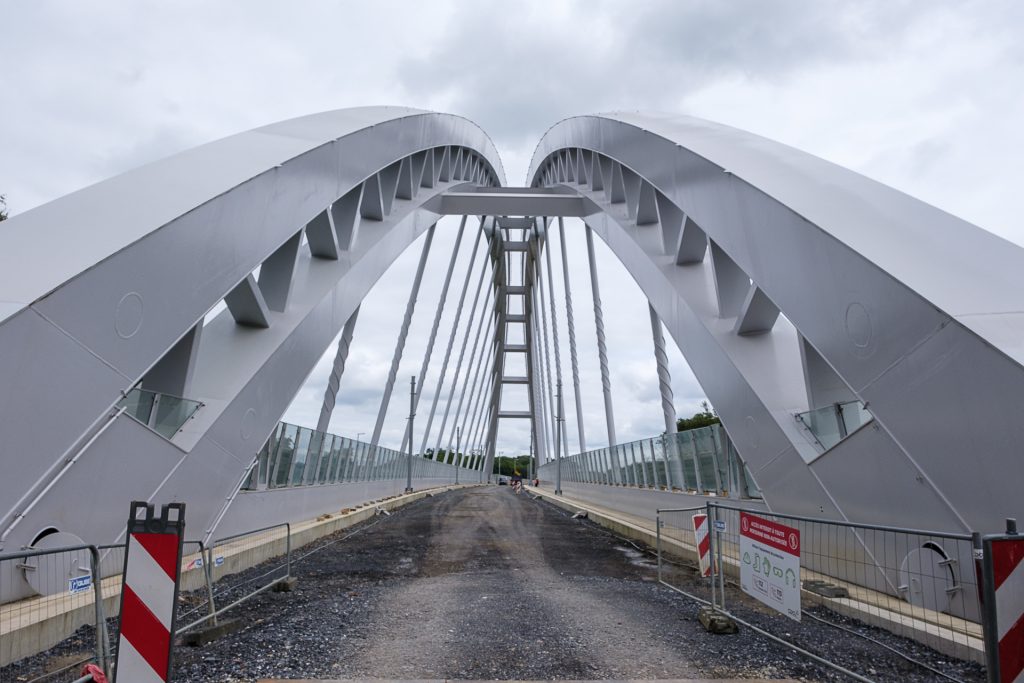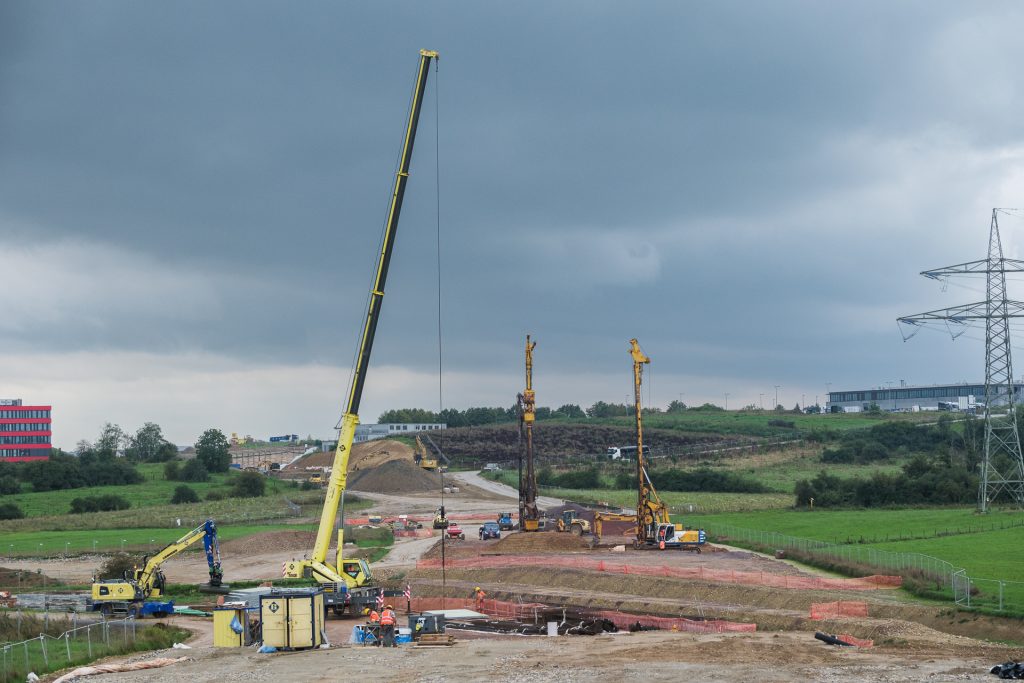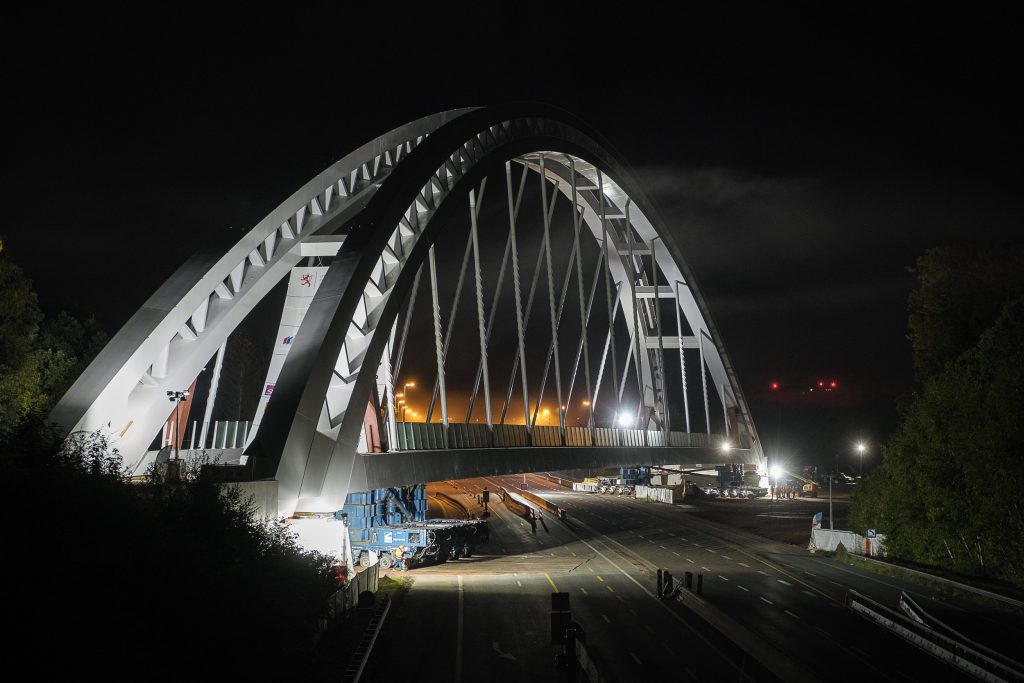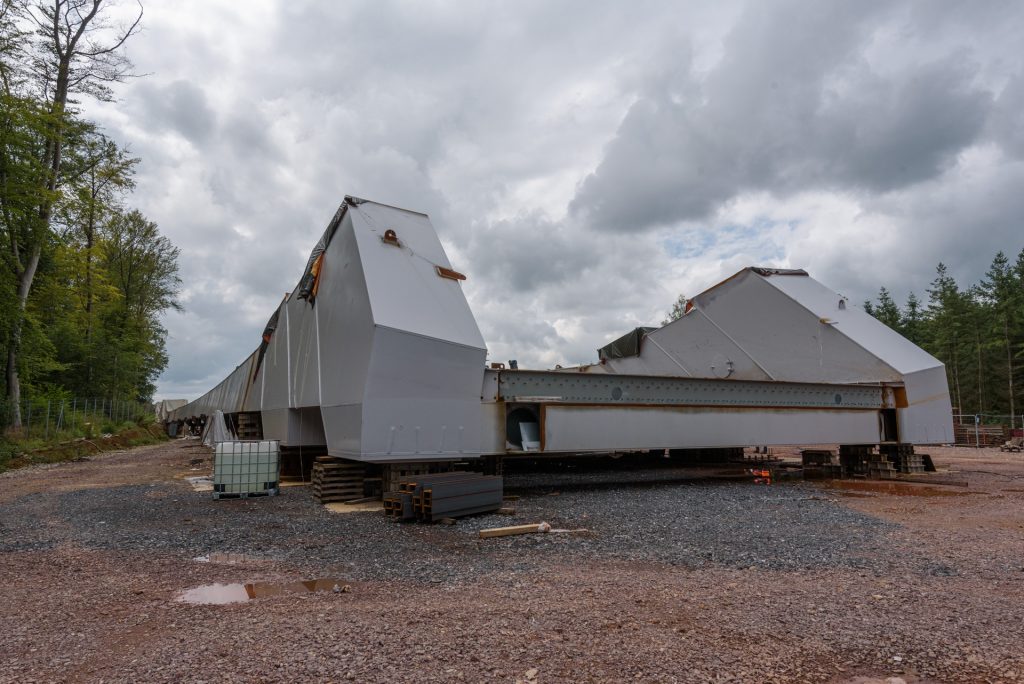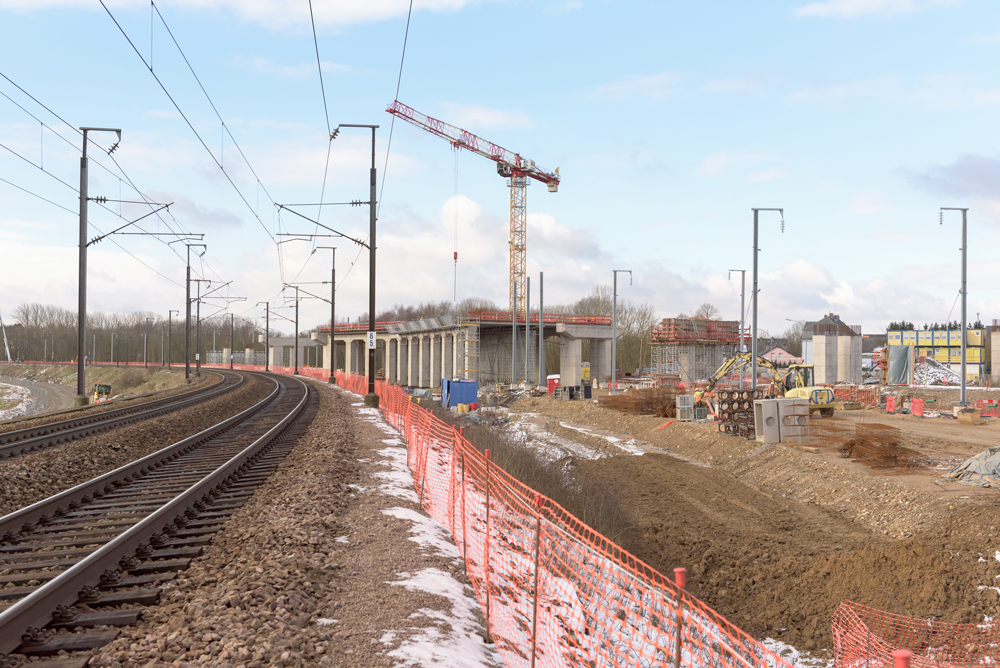
‘’It’s vital to integrate customer feedback into our substitution offer‘’
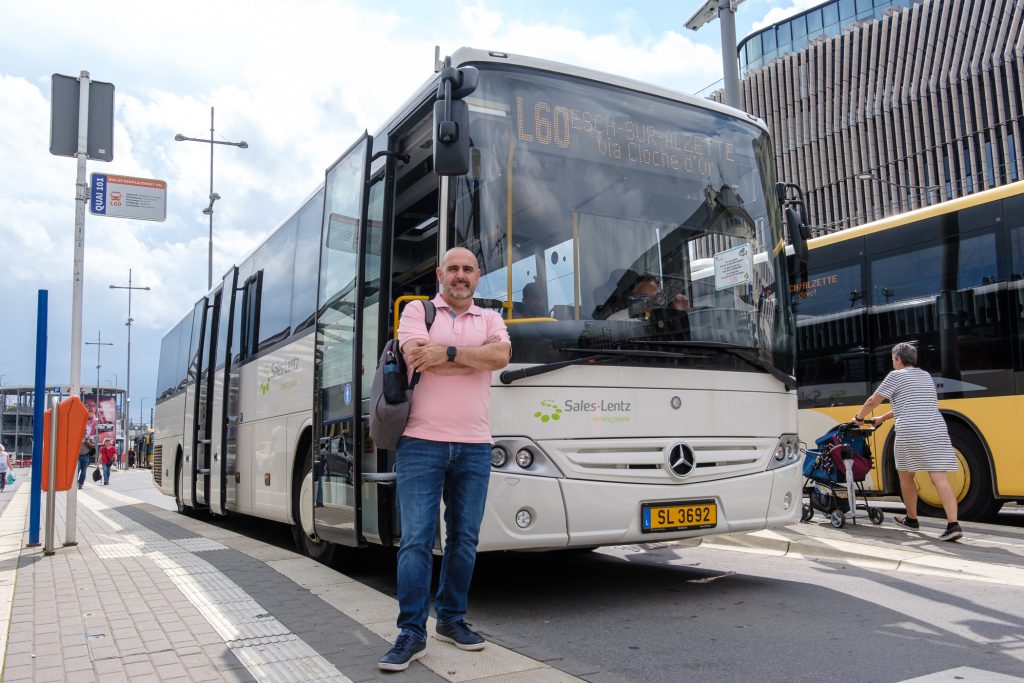
28.7 million passengers transported. This is the new record for the number of passengers who chose to travel by train in 2023. A new record that testifies to the importance of the train among the travel habits of many customers, whose numbers have doubled in less than twenty years. This development goes hand in hand with substantial investment in Luxembourg’s rail infrastructure and the continuation of a major modernisation and extension programme by the CFL. These major works also require the introduction of alternatives to ensure that customers can continue to be transported during periods when rail traffic is interrupted to allow the work in question to progress quickly and safely.
We spoke to Alex, Rail Traffic Substitution Coordinator at the CFL.
Alex, can you sum up your day-to-day work in a few lines?
(Laughs) Frankly, I don’t think there’s any one type of job we do every day. The number of passengers is growing all the time, and our rail network has to keep up. The work carried out by the CFL is therefore vital if we are to continue to meet current and future mobility needs.
On the other hand, where there’s work, there’s a need for alternatives, and that inevitably means buses. On my side, I’m in charge of planning and organising the alternative bus services that CFL makes available to its customers during engineering works.
‘’Our offer has to meet the needs of a wide range of stakeholders.‘’
Alex, Rail Traffic Substitution Coordinator at the CFL.
A coordination task that undoubtedly involves many different moving parts?
Absolutely. On a day-to-day basis, I maintain and foster contact with many of the people involved in mobility. Let’s take a concrete current example. The closure of Bettembourg station from 13.07 to 11.08.2024. This closure is necessary to allow the Roads and Bridges Administration to renew the Emile Hammerel road bridge. During this period, we knew more than a year ago that rail traffic would be interrupted on the Thionville – Luxembourg, Esch/Alzette Luxembourg and Noertzange-Rumelange and Volmerange-les-Mines – Luxembourg services. Given the large number of customers affected by these works, finding an alternative bus service is a real challenge.
As a result, our offer has to meet the needs of a wide range of stakeholders. With the SNCF, for example, we have to make sure that the number of coaches matches the number of passengers continuing their journey to Luxembourg or Howald from Thionville.
We have to make sure that we have the space and platforms needed to get our customers onto the buses. Close links have also been established with the municipality of Bettembourg and the city of Luxembourg to set up temporary bus stops on their respective territories. With such a large number of buses, it is important to ensure that they do not cause congestion on busy roads. Another important stakeholder is the Public Transport Authority, which is responsible for organising bus departures and arrivals at the Rocade bus station and for coordinating our bus service with the RGTR route buses.
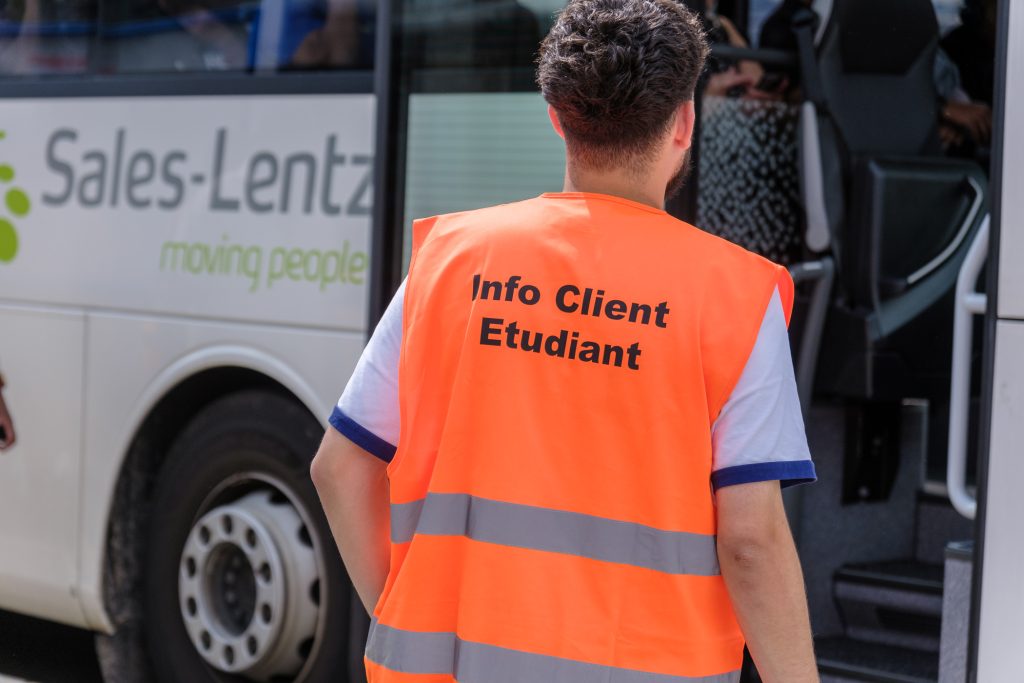
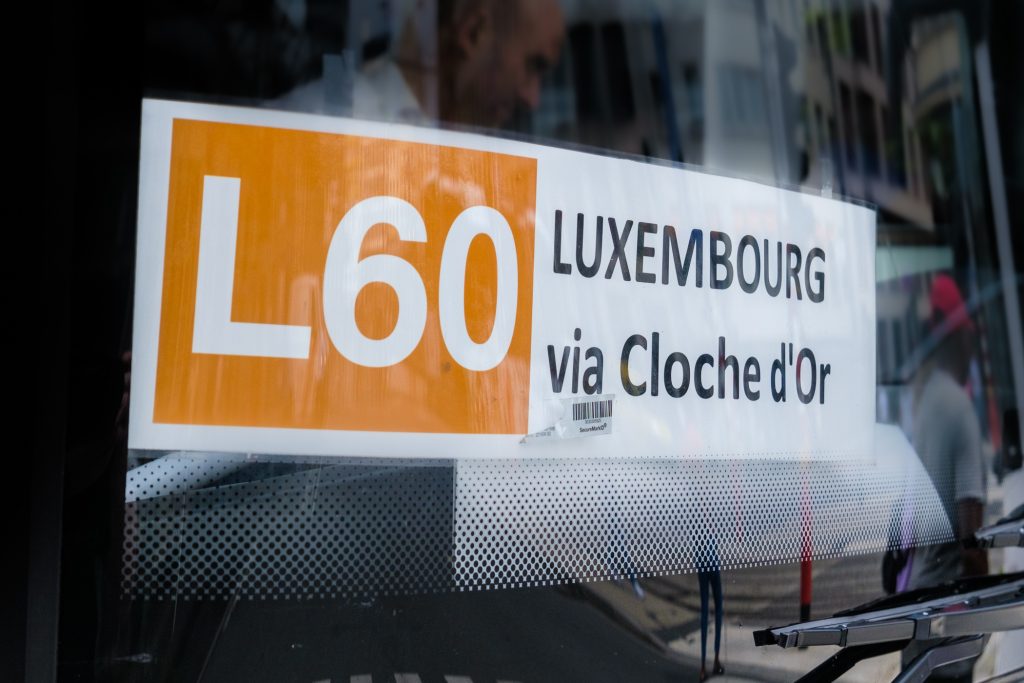
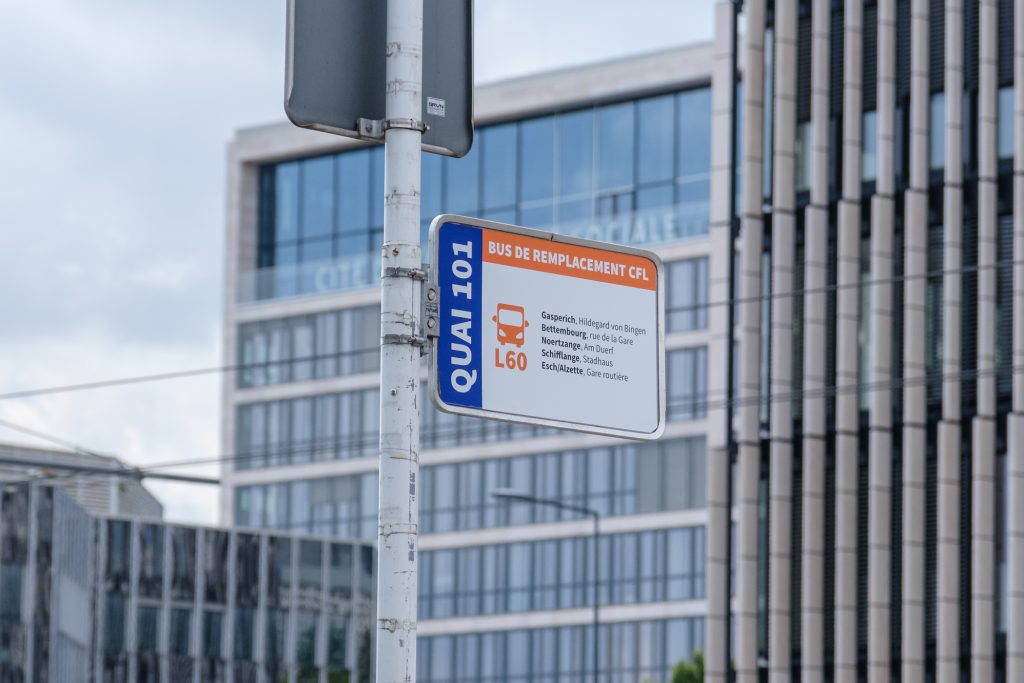
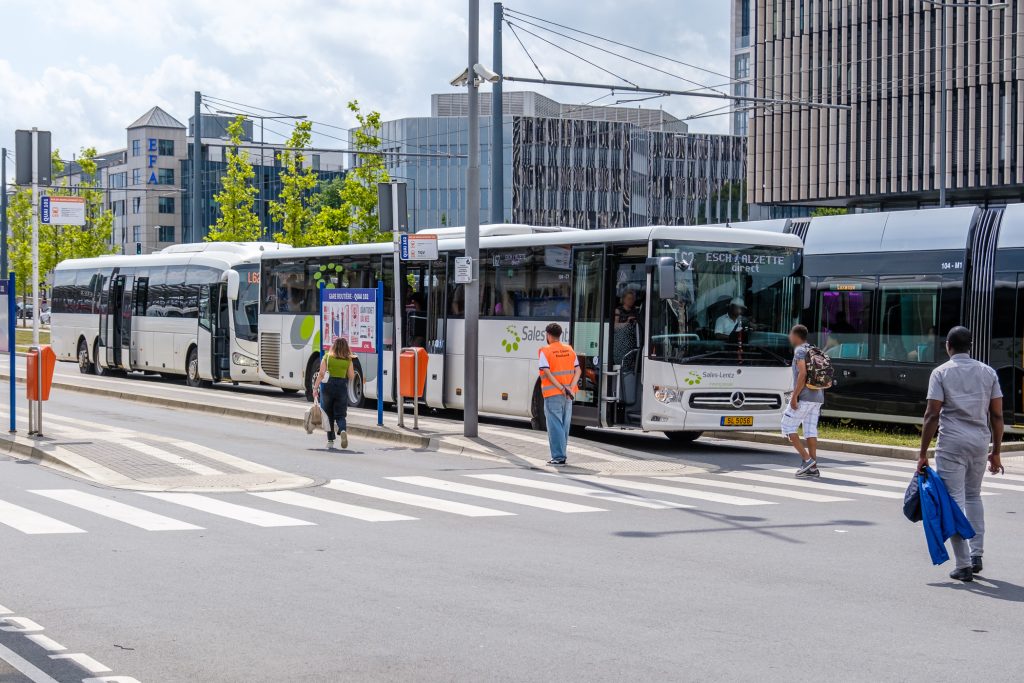
If you compare the bus replacement service with previous years, you will notice that these buses are spread out over many different stops? Why is this?
With such a large number of buses on offer, it is important to ensure that the main roads are not obstructed. At present, around 800 bus journeys are being made every day to make up for the disruption to rail traffic. More than 200 bus drivers are being mobilised. So we’re talking about a significant number of buses in addition to the many vehicles on the country’s roads. To avoid congestion at the Luxembourg bus station, it is therefore impossible to route them all through the central station. Our bus offer has therefore been rethought, and different interchanges and different means of travel have been integrated into our offer.
While the majority of replacement buses on the Luxembourg – Esch/Alzette – Rodange route are accommodated at Luxembourg bus station, buses to/from Thionville use the Rocade bus station, right next to Luxembourg Station. For customers going to Howald and Ban de Gasperich, we are offering buses to these emerging districts of the capital, while adding the possibility of reaching them by tram, either from the Lycée Bouneweg tram stop by taking the tram from the Luxembourg Station tram stop. The aim is therefore to spread this large number of passengers over different parts of the capital in order, firstly, to avoid congestion at the bus stations and, secondly, to combine our alternative offer with other mobility partners.
‘’Working in the customer’s interests means acting as a good parent.‘’
Alex, Rail Traffic Substitution Coordinator at the CFL.
A choice that can also be explained by past experience?
Our customers’ mobility needs are constantly evolving. So it’s vital that we listen carefully to our customers and incorporate their feedback into the design of our replacement offer. By taking into account the experiences of past years, we can continually fine-tune our offering. It enables us to anticipate a whole series of factors and identify our customers’ needs. One of these needs was to make it easier to identify the bus the customer needs. Is it the direct bus, or is it the bus that serves all the stops? This is why we have opted for an even clearer name for our replacement buses, i.e. L90, L91, L94, etc. On the other hand, as travel habits continue to evolve, we need to remain agile and react when necessary. Despite all the preparation, certain points are difficult to anticipate. Taking advantage of past experience is therefore a good approach, but you need to stay on your toes.
As was the case at the start of the summer works period?
Yes, exactly. As in previous years, our bus service is based on passenger counts (how many people travel at what time) from previous months. However, this year a lot of customers wanted to get ahead of the traffic on the roads to the Grand Duchy and chose to leave for the Luxembourg capital shortly after 5.00 am. We noticed this on the first day of our replacement bus service in Thionville. We therefore decided to react immediately and expand our replacement service during this time slot. For return journeys from the capital to Thionville, we wanted to make it even easier for our customers to find their way to France.
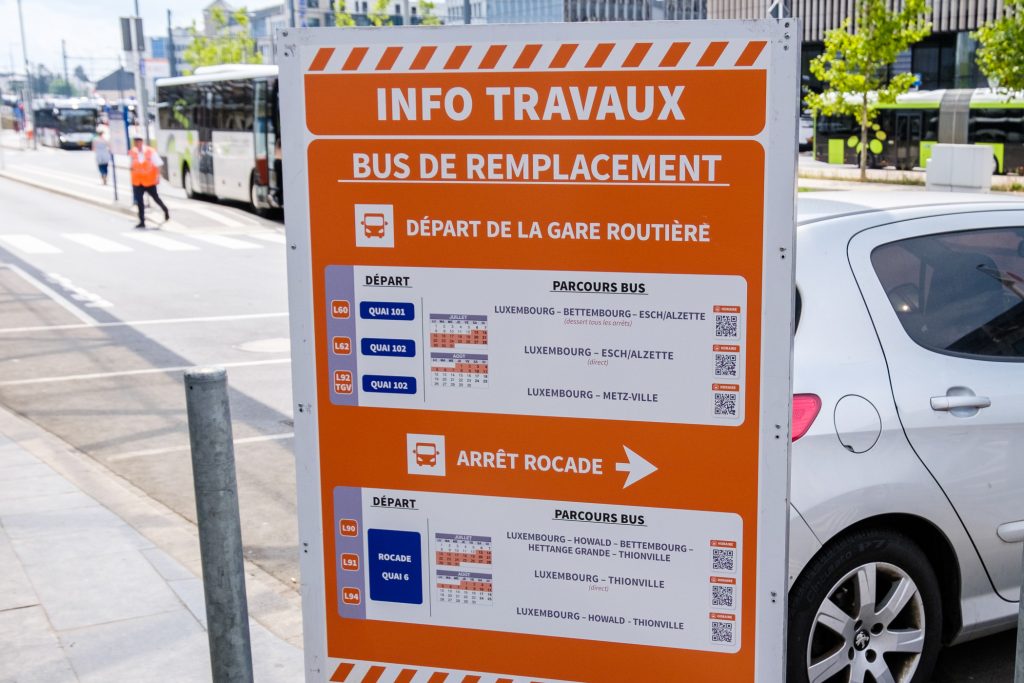
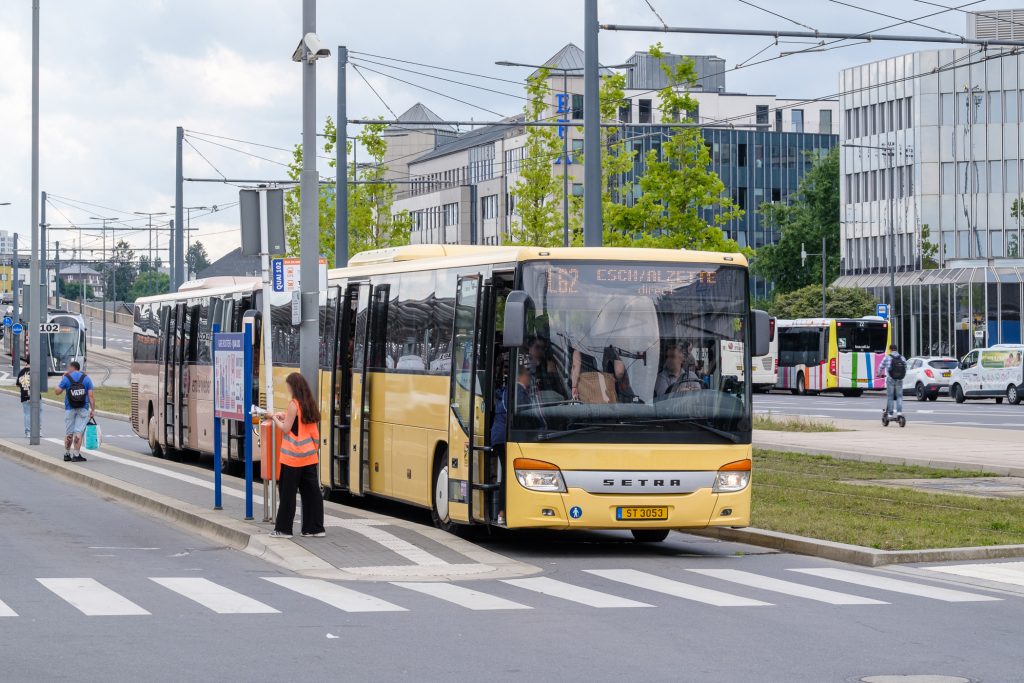
Working closely with the Public Transport Authority, we have redefined the service concept for the Rocade stop and separated the departure platform for RGTR line buses and the CFL replacement buses. In short, working in the customer’s interests means acting as a good parent and offering the best possible service on the basis of what is available, in terms of drivers, buses, roads, and so on. Acting as a bus substitution coordinator therefore means listening to identify all the needs, acting in the interests of everyone, and most importantly of our customers, while at the same time constantly improving to reinvent ourselves from one project to the next.
Alex has been working as a Rail Traffic Substitution Coordinator since 2016. After some fifteen years’ experience as a bus driver and involvement in coordinating the working schedules (staff and rolling stock) of the CFL Bus Service, Alex combines his extensive experience in the field with an unfailing commitment to serving his customers.
